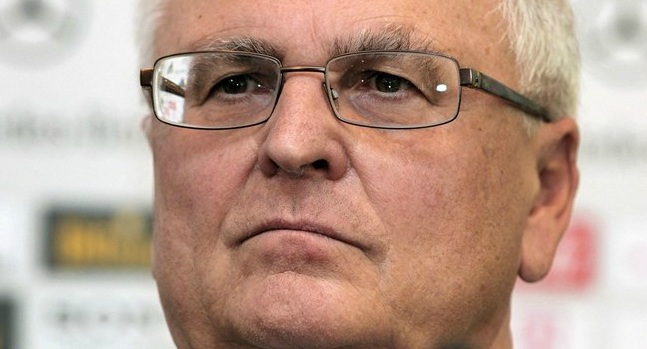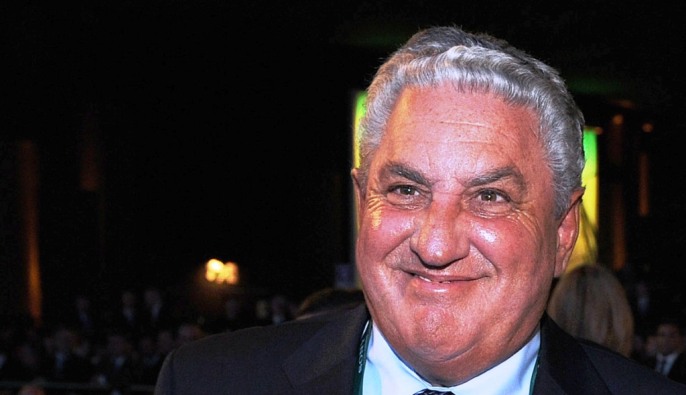By Andrew Warshaw in Budapest
May 25 – The automatic British vice-presidency of FIFA, which has been in place since 1947, looks almost certain to be scrapped as part of the drive to make football’s world governing body more forward-looking and less anachronistic.
Although the move has long been an open secret, Theo Zwanziger, Germany’s FIFA Executive Committee member and the man charged with drawing up a revision of the statutes, told the FIFA Congress in Budapest that the time had come to get rid of the so-called British seat, currently occupied by Northern Ireland’s Jim Boyce (pictured above) until 2015.
A final decision will be made at next year’s Congress in Mauritius but Zwanziger made it clear that the seat, likely to become a Europe-wide position controlled by UEFA, was on the way out.
“I have a lot of respect for what the British have done for a century or more but football has moved on and it is our duty and obligation to decide if the privileges are still justified in our time and age,” he said.
“This question has been raised in relation to the British vice-presidency.”
The four British domestic associations have already accepted the time has come to consider giving up a unique privilege that has stood for 66 years.
While other key positions at FIFA are elected, the British vice-presidency has historically always been a nominated post.
The English Football Association has been at the forefront of demands for wide-ranging reforms at FIFA and admits that relinquishing the seat may have to be part of that process.
Less palatable to the British federations, however, will be a suggestion by Zwanziger (pictured below) that the composition of the International Football Association Board (IFAB), the game’s lawmakers, also be changed.

English FA general secretary Alex Horne has already stressed the importance of the four associations holding on to power within IFAB but Zwanziger said: “We believe that IFAB should renew itself from within, but perhaps the composition should change.
“It should be more modern and more democratic, more transparent and not allow for blocking other views.
“We should know clearly and publicly why something has been rejected.”
Meanwhile, a special IFAB meeting scheduled for July 2, the day after the 2012 European Championship final in Kiev, is now expected to take place in Zurich three days later.
The meeting has been specifically called to make a final decision on goal-line technology but has been rescheduled for logistical reasons.
Final testing is currently being carried out on two rival systems, Hawk-Eye and GoalRef, with the former to be used at the England-Belgium friendly at Wembley Stadium next month.
Contact the writer of this story at zib.l1745328606labto1745328606ofdlr1745328606owedi1745328606sni@w1745328606ahsra1745328606w.wer1745328606dna1745328606
Related stories
March 2012: Exclusive – Controversial confederation head FIFA vice-president proposal thrown out
March 2012: British FIFA vice-presidency is anachronistic, admits FA general secretary
March 2012: Mihir Bose – If FIFA is to reform can British privileges be defended?
January 2012: Exclusive – Britain’s FIFA Presidency is not under threat, insists Prince Ali

